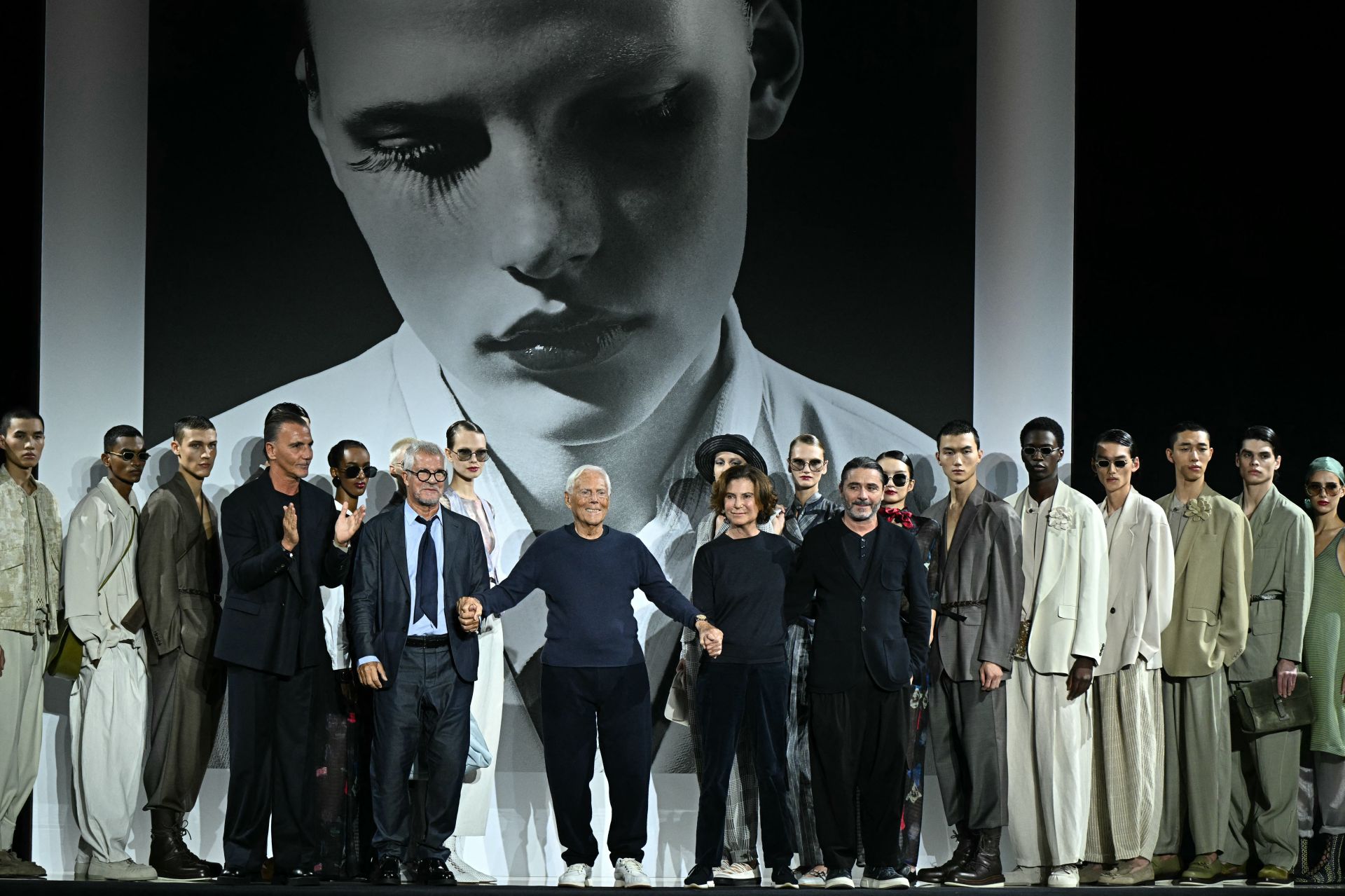
Eschewing flash in favor of fluid lines, muted tones and quiet luxury, Armani built a multi-billion-dollar empire that extended from Hollywood red carpets to high-street malls. From his revolutionary unstructured suits in American Gigolo to his timeless power silhouettes for working women, the designer’s minimalist vision left a lasting imprint on late 20th-century and early 21st-century style.
Tapping Italy's long heritage of classic, impeccable tailoring, Giorgio Armani built a multi-billion-dollar fashion empire, making his name synonymous around the world with relaxed, restrained elegance.
The country's best-known contemporary designer, the white-haired and permanently tanned Armani, whose death was announced Thursday, eschewed ostentation and flash throughout his career, instead making simplicity and understatement the hallmarks of his influential style.
Armani borrowed from traditional codes of Italian suit design, but in using lighter weight fabrics and looser cuts, his more modern, pragmatic silhouettes redefined power dressing and ushered in decades of commercial success.
"My work has one single goal: giving women the inner strength that comes with being at ease, with who they are and what they are wearing," the designer, who usually sported a simple uniform of navy-blue sweaters, cotton pants and white sneakers, told Vogue in 2022.
The Armani Group, saluted the "tireless driving force" of its founder in announcing his passing, without giving a cause of death.
Gorgeous in Greige
The choice of stars from Jodie Foster and Michele Pfeiffer to George Clooney and Leonardo Di Caprio, Armani made his first international splash with Richard Gere's wardrobe in the 1980 film American Gigolo.
Draped on the back of the photogenic young star, Armani's unlined linen blazers and relaxed, sophisticated separates in muted shades like greige and charcoal heralded a new unstructured, graceful way of dressing for men and women who began clamoring for his new creations.
In 1982, Armani was featured on the cover of "Time" magazine under the headline "Giorgio's Gorgeous Style", a design aesthetic that catapulted the designer to the top of the fashion hierarchy, where he remained for decades.
Born July 11, 1934, in Piacenza in northern Italy, the young Armani enrolled in medical school, then the army, before his first job in fashion, working as a window dresser at a Milan department store.
In the mid-60s, renowned Italian designer Nino Cerruti offered Armani a job designing menswear. By 1973, Armani had opened his own Milan design studio, encouraged by his business and romantic partner Sergio Galeotti. A debut eponymous collection came in 1975, at the age of 41.
Galeotti, whom Armani has credited as the company's soul in its early days, managed the financial side of the growing business until his death in 1985.
Timeless Not Trendy
From the company's beginnings, Armani eschewed ostentation and flash, making pared-down restraint, together with impeccable tailoring, the recipe for success.
Although some of his most famous fashion successes, think of TV series Miami Vice today seem to belie his philosophy of timelessness over trendy, Armani's minimalism and monochromatic tones set him apart from contemporaries.
In particular, his understated looks offered a quieter, refined vision of late 20th century Italian fashion than that of rival Gianni Versace, who favored overtly sexy, colorful designs.
As women in the workplace began snatching up Armani's broad-shouldered power suits, he cemented his relationship with Hollywood as one of the first to dress the red-carpet A-list.
Stores soon followed, along with lines for jeans, perfumes, underwear, sunglasses and ready-to-wear line Emporio Armani, making the designer ubiquitous from the mall to the closets of the ultra-wealthy.
After expanding into haute couture, interior design, hotels and even chocolates, Giorgio Armani SpA posted revenues of 2.15 billion euros in 2019, the year before Covid hit the luxury sector, making it Italy's second-biggest fashion house after Prada by sales, according to Deloitte.
Forbes has estimated that Armani himself was worth $12.1 billion (10.38 billion euros).
By Alexandria SAGE / AFP



Comments